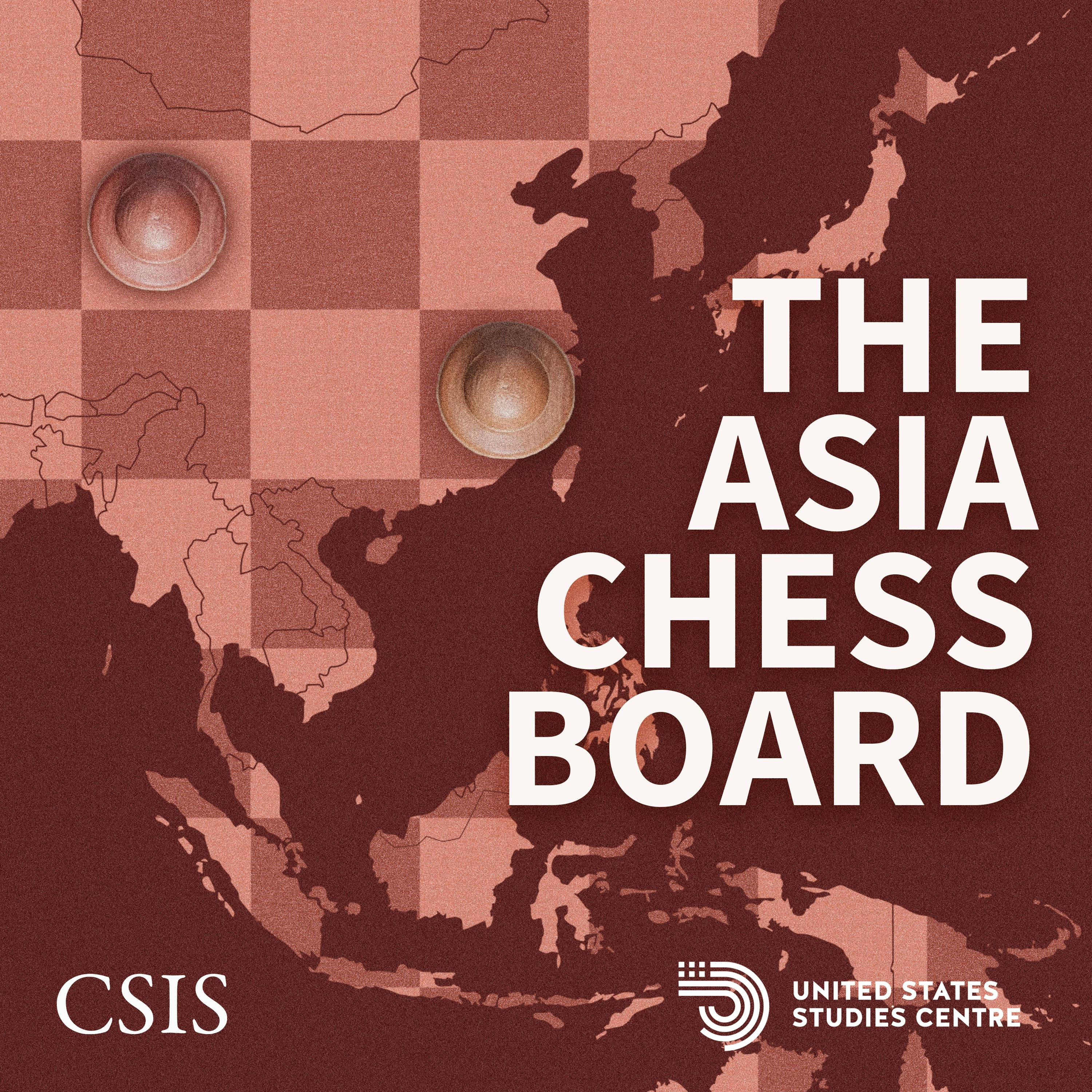

The Asia Chessboard
Center for Strategic and International Studies
The “Asia Chessboard” features in-depth conversations with the most prominent strategic thinkers on Asia. Host Michael Green, Henry A. Kissinger Chair at CSIS and CEO of the United States Studies Centre, takes the debate beyond the headlines of the day to explore the historical context and inside decision-making process on major geopolitical developments from the Himalayas to the South China Sea. Experience the hard calls and consequential debates that drive US policy towards this critical region of the world.
Episodes
Mentioned books

Oct 1, 2024 • 41min
US-China Relations From the Inside
Rick Waters, managing director of Eurasia Group's China practice and former top China policy official at the US State Department, dives into the nuanced world of US-China relations. He discusses the significant political shifts under Xi Jinping, emphasizing centralization and the impact of the 'Made in China 2025' initiative. Waters explores China's cautious strategy amid US election uncertainties, detailing its effects on trade and alliances. He also shares insights on crisis management, including the EP-3 incident, and calls for a collaborative US approach with allies to navigate these strategic complexities.

Sep 17, 2024 • 33min
Kiwi Crossroads: Navigating New Zealand’s Strategic Landscape
This week Mike and Jude are joined by David Capie, Director of the Centre for Strategic Studies and Professor of International Relations at the Victoria University of Wellington. They discuss New Zealand’s transitioning approach to its regional relationships.

Sep 5, 2024 • 37min
Malaysia’s Path in a Contested Asia
This week Mike is joined by Elina Noor, Senior Fellow for the Asia Program at the Carnegie Endowment for International Peace. They discuss Malaysia’s approach to geopolitics and outlook for the future.

Aug 6, 2024 • 37min
Debating America’s “Pivot” to Asia
Robert D. Blackwill, a senior fellow for U.S. Foreign Policy at the Council on Foreign Relations, and Richard Fontaine, CEO of the Center for a New American Security, dive deep into America's strategic pivot to Asia. They discuss their new book, 'Lost Decade', addressing the complexities of U.S. foreign policy amid China's rise. The duo explores Xi Jinping's leadership misinterpretations, the challenges of the pivot during the Obama administration, and the critical need for a cohesive U.S. strategy in navigating the changing power dynamics in Asia.

Jul 24, 2024 • 41min
The View from INDOPACOM
This week Mike and Jude are joined by join Lt. General Stephen Sklenka, USMC, Deputy Commander of U.S. Indo-Pacific Command. They discuss deterrence and the current state of play in the Indo-Pacific region.

Jul 9, 2024 • 40min
NATO and the Indo-Pacific
Benedetta Berti from NATO discusses NATO's perspectives on the Indo-Pacific, transitioning from academia to policy-making, strategic competition among authoritarian countries, geopolitical alignment, the upcoming NATO Summit, and strengthening defense collaboration.

Jun 25, 2024 • 39min
How Will Taiwan's New Leader Govern?
Financial Times correspondent Kathrin Hille joins to discuss Taiwan under President Lai, US relations, and Beijing's response. Topics include political turmoil in the Legislative Yuan, Taiwan's foreign policy strategy, defense dynamics, and divergent leadership approaches in Taiwanese politics.

Jun 12, 2024 • 37min
How Demographics Impact Security in the Indo-Pacific
Professor Andrew Oros discusses demographic shifts in Asia and their impact on security in the region. Topics include aging populations, low birth rates, and the significance of demographics on national power. The conversation also delves into Japan's efforts to increase women representation in the military and China's approach to addressing demographic challenges affecting its military capabilities.

May 28, 2024 • 34min
How Sri Lanka Navigates Great Power Competition
Amb. Julie Chung, U.S. Ambassador to Sri Lanka, discusses Sri Lanka's strategic importance in the Indo-Pacific, challenges in managing relationships amidst great power competition, rumors of a Chinese military base, and the importance of reconciliation and democratic values for the country's future success.

Apr 2, 2024 • 35min
Taiwan Decides: Assessing Taiwan’s Presidential Election
Richard Bush, a former chairman of the American Institute in Taiwan, discusses Taiwan's recent elections and the implications for democracy and human rights. The podcast delves into Taiwan's leadership transition, Beijing's strategy, US support for Taiwan, and the need for diverse voices in understanding Taiwan's politics.


